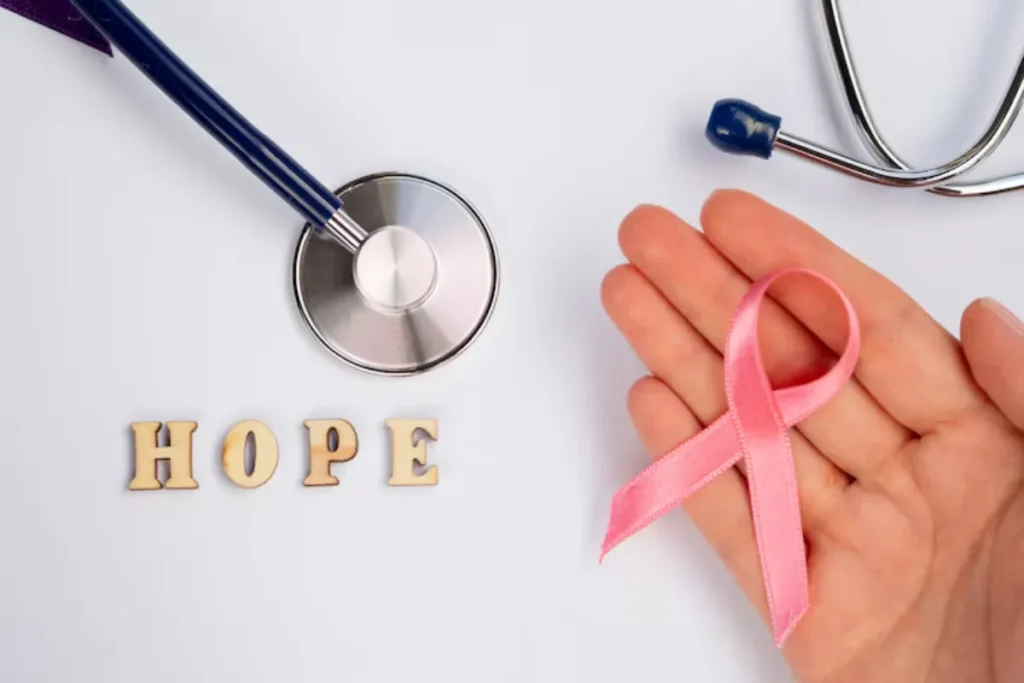Breast cancer is a condition that affects millions of women worldwide, making it crucial to understand its causes, symptoms, and precautions. This article aims to provide comprehensive insights into breast cancer in simple terms, along with practical steps for prevention.
Understanding Breast Cancer
Breast cancer is a complex disease that can vary widely in its presentation and behavior. It typically begins in the cells of the milk-producing ducts (ductal carcinoma) or the lobules (lobular carcinoma) of the breast. From there, cancerous cells can invade nearby tissue and spread to other parts of the body, a process known as metastasis.
What Causes Breast Cancer?
The exact cause of breast cancer remains unknown. However, certain factors increase the risk of developing the disease. These include:

- Genetic Mutations: Inherited changes in genes like BRCA1 and BRCA2 raise the risk considerably.
- Family History: Having a close relative (mother, sister, daughter) with breast cancer increases your risk.
- Hormonal Factors: Extended exposure to estrogen, the female sex hormone, can contribute to breast cancer risk. This includes factors like starting menstruation at a young age, having late menopause, or taking hormone replacement therapy (HRT) for a prolonged period.
- Lifestyle Factors: Obesity, lack of physical activity, and excessive alcohol consumption can elevate breast cancer risk.
- Breast Tissue Density: Women with denser breast tissue are more likely to have mammograms that appear abnormal, although the tissue itself may not be cancerous.
Recognising the Signs and Symptoms
Breast cancer doesn’t always present with noticeable symptoms. However, here are some signs to be aware of:
- Lump in the Breast or Armpit: A lump that feels different from surrounding breast tissue and persists through your menstrual cycle is a crucial sign.
- Changes in Breast Shape or Size: Notice any alterations in the size, shape, or contour of your breasts.
- Nipple Changes: Look for dimpling, inversion (pulling inward), or discharge (bloody or clear) from the nipple.
- Skin Changes: Be mindful of changes in the skin texture of your breast, such as redness, scaling, or thickening.
- Pain: While not always a symptom of breast cancer, persistent breast pain or discomfort should be evaluated by a healthcare professional.
Early Detection is Key

Regular breast self-exams and mammograms are vital for early detection.
- Breast Self-Exam: Conduct a monthly breast self-exam to familiarize yourself with the usual look and feel of your breasts. Report any changes to your doctor.
- Mammograms: Mammography uses low-dose X-rays to detect abnormalities in breast tissue. Screening recommendations vary depending on age, risk factors, and family history. Discuss with your doctor to determine the most suitable schedule for you.
Diagnosis and Treatment Options
If you experience any concerning symptoms, your doctor will recommend diagnostic tests like mammograms, ultrasounds, biopsies (tissue sample extraction), and possibly additional tests to determine the type and stage of cancer.
Following diagnosis, your doctor will create a personalized treatment plan based on various factors like the type and stage of cancer, your overall health, and preferences. Treatment options may include:
- Surgery: This might involve removing the entire breast (mastectomy) or a portion of the breast (lumpectomy) along with nearby lymph nodes.
- Radiation Therapy: High-energy rays target and destroy cancer cells.
- Chemotherapy: Powerful drugs are used to kill cancer cells throughout the body.
- Hormone Therapy: Certain medications block the effects of hormones that fuel cancer growth.
- Targeted Therapy: Drugs target specific vulnerabilities in cancer cells.
Preventive Measures
While there’s no guaranteed way to prevent breast cancer, certain lifestyle changes can significantly reduce your risk:

- Maintain a Healthy Weight: Aim for a balanced diet and regular exercise to manage your weight.
- Stay Active: Engage in regular physical activity for at least 30 minutes most days of the week.
- Limit Alcohol Consumption: Excessive alcohol intake can increase breast cancer risk.
- Consider Breastfeeding: Breastfeeding for at least six months might offer some protection.
- Discuss Hormone Therapy Risks: If considering HRT for managing menopausal symptoms, discuss the potential risks and benefits with your doctor.
- Talk to Your Doctor: If you have a family history of breast cancer, discuss genetic testing and appropriate screening strategies with your doctor.
Early detection is crucial for successful breast cancer treatment. Be familiar with your breasts, conduct regular self-exams, and schedule routine mammograms as recommended by your doctor. Maintaining a healthy lifestyle also plays a significant role in reducing your risk. By staying informed and taking proactive steps, you can empower yourself in the fight against breast cancer.
Disclaimer: This material, including advice, provides general information only. It is in no way a substitute for a qualified medical opinion. Take the methods, and claims mentioned in this article as suggestions only; DNP India does not confirm or refute them. Consult a doctor before implementing any such suggestions/ treatment/medicine/diet.


